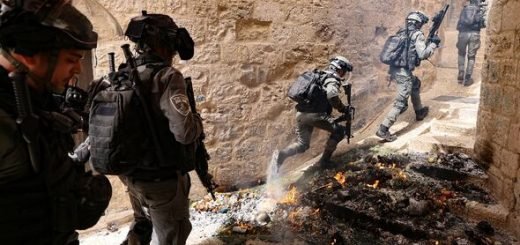Pandemic Diplomacy and Outreach in West Asia: A Crucial factor for India’s power in the Post-Pandemic world Order
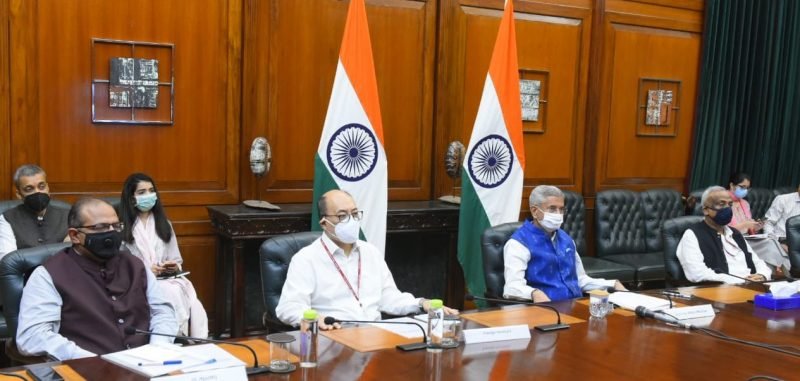
The world is grappling with the menacing COVID 19 crisis. Governments around the world are hard-pressed and working tirelessly to come out of the crisis as early as possible to avoid longer disruption of economic lockdown. But a new reality is also emerging fast in the horizon of world politics and power. China’s response to the crisis, handling of the countries in the region with strong hand diplomatic tactics, its growing preponderance over the international institutions (as managed WHO for delayed declaration of COVID 19 as pandemic), use of its Security Council chair and its clout to deny Estonian Resolution to discuss the Chinese responsibility for the pandemic, point to an unfolding pattern of changing world order.
In such scenario, what should be the response of India as an emerging power to deal with this new reality and position itself strategically to pursue its goals and assume appropriate responsibility in the unfolding post-COVID world order? There is an urgent need for India to use its soft power in the regions of strategic, geopolitical and geo-economic importance. Besides the region of South Asia, West Asia is an important strategic area with profound geostrategic and geo-economic significance. The SAARC video conference summit with India’s proposal to create COVID 19 Emergency Fund, Rapid Response Team of Doctors and Specialists, Online training of emergency Response Team and Integrated Disease Surveillance Portal have created an urge for regional collaboration to effectively deal with the unprecedented pandemic.[1] The crisis provides India a perceptible edge over other powers to position itself with its unbeatable soft power in the region- historical linkages, cultural ties and more importantly a strong and vibrant Indian diaspora in the region. The SAARC initiative has received very favourable attention of the leaders in the region, in the Gulf and wider West Asia. During the telephonic conversation of PM Modi with the Saudi crown prince on 17th March, the SAARC ways found mention by the prince of the kingdom, the Chair of G20 that similar exercise is useful to address the challenges posed by the global outbreak of the pandemic and to instil requisite confidence to the global community to come out successfully.[2]
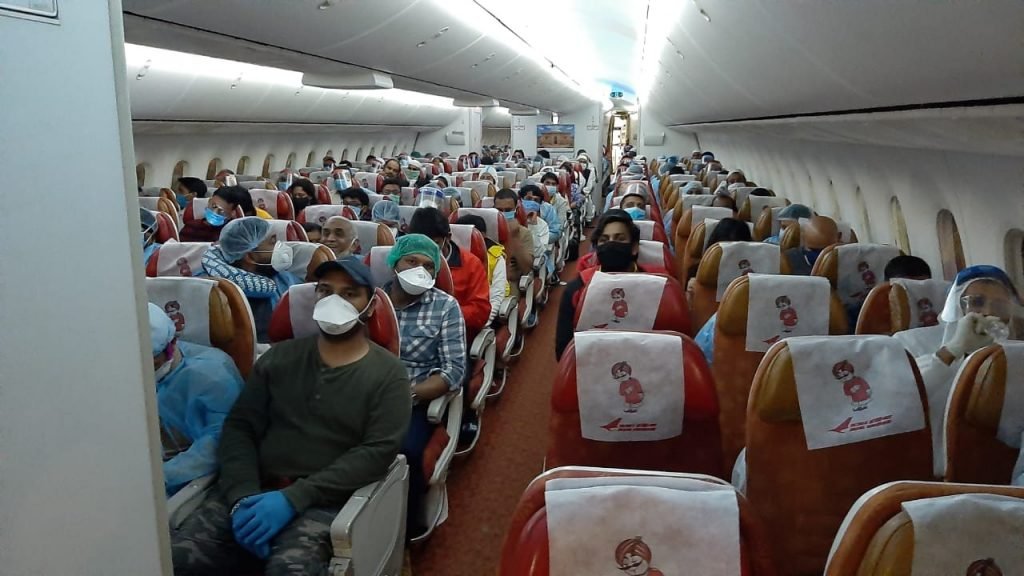
Coordination of Regional Response to COVID 19 in the Region
West Asian region provides a grim scenario so far as the fight against the pandemic is concerned. Most of the countries are war-torn and violence-ridden for long. Their civic infrastructure and healthcare facilities are not good enough to face the enormity of the pandemic. At the time when I am writing this, the government of India is making the update that positive case across the country has reached around 12000 but there is no community transmission yet. The entire government machinery is in alert and doing their utmost in ensuring the precautionary measures of social distancing and home quarantine during the lockdown. Such a situation is a very good sign, an example for its image in the perception index of the world and the countries that are looking for models and strategies for their countries. The West Asian countries and Gulf countries, in particular, will like to follow the Indian model and guidance in their respective strategies and action. India must siege this opportunity at this juncture of the crisis of such proportion to bring coordination of strategies and plan of action among the countries in the region which otherwise is a divided pool of regimes and their conflicting political pursuits. PM Narendra Modi has taken steps in this regard and talking with every head of states in the region and give assurance of cooperative regional response to face the crisis. During his conversation with the Sultan of Oman on 7th April 2020, the country was given India’s possible support as a very important part of its extended neighbourhood.[3] India can use its leverage, be it Iran and Saudi Arabia or Qatar and Saudi led quartet, and weave them into a coordinated whole, an essential requisite to overcome the rising crescendo of the pandemic and its dire consequences which can devastate the region.
Indian Diaspora: A Soft Power Advantage
The Gulf region is of particular importance which hosts a huge portion of Indian diaspora around 8 million and who account for huge remittance (around $40 billion). This vast diaspora forms the backbone of economies of the region. Diaspora forms the strongest element of soft power in the foreign policy of a country. Our historical linkages and encounters make it a more peerless advantage for India. The primacy and importance of this region have come to the limelight with the numbers of visits by Prime Minister Narendra Modi and the amount of warm responses in those countries has made the region an extended arm of India. The crisis has given a chance to demonstrate its responsibility towards these countries by taking them on-board in India’s extended neighbourhood response to fight the pandemic. Prime Minister Modi has personally interacted with most of the leaders of the Gulf on a collaborative and mutually coordinated strategy against the pandemic. The Prime Minister has also requested the countries particularly for the well-being of the Indian diaspora in the region.[4]
Indian soft power is an added advantage in the region which has been in a long drawn process of exchange in culture, civilisation and trade. In the contemporary context, multiple movements of goods, capital and services are unique facets of India’s linkages with the region. At present, the Gulf forms an integral part of India’s extended neighbourhood with natural geographical proximity and expanding Indian interests and influence.[5] Such an advantage of soft power is lacking among the other power competing in the region- the receding fatigued American power and increasing Chinese footprints. The current outreach is sure to re-establish India as a paramount force of stability and prosperity in the region. The GCC has already been the largest trading partner of India and the economic mutuality is on the ascending mode. Major oil companies of the region, ARAMCO (Saudi Arabia) and ANDOC (UAE) are developing a strategic partnership with the Indian companies both in the public and private sector.[6] Saudi Arabia is set to invest $100 billion in energy, refining petrochemical and also in the field of agriculture, infrastructure and mining.[7] These manifestations of engagement and pattern of economic interdependence have gained a substantial boost with the presence of Prime Minister Modi in the ‘Davos in the Desert’ event. The Indian policy of extensive engagement has considerably spurred India’s position of influence as a responsible power in the region. The pandemic outreach, therefore, would deepen the pace of engagement and can emerge as a region of India’s economic pursuit to power.
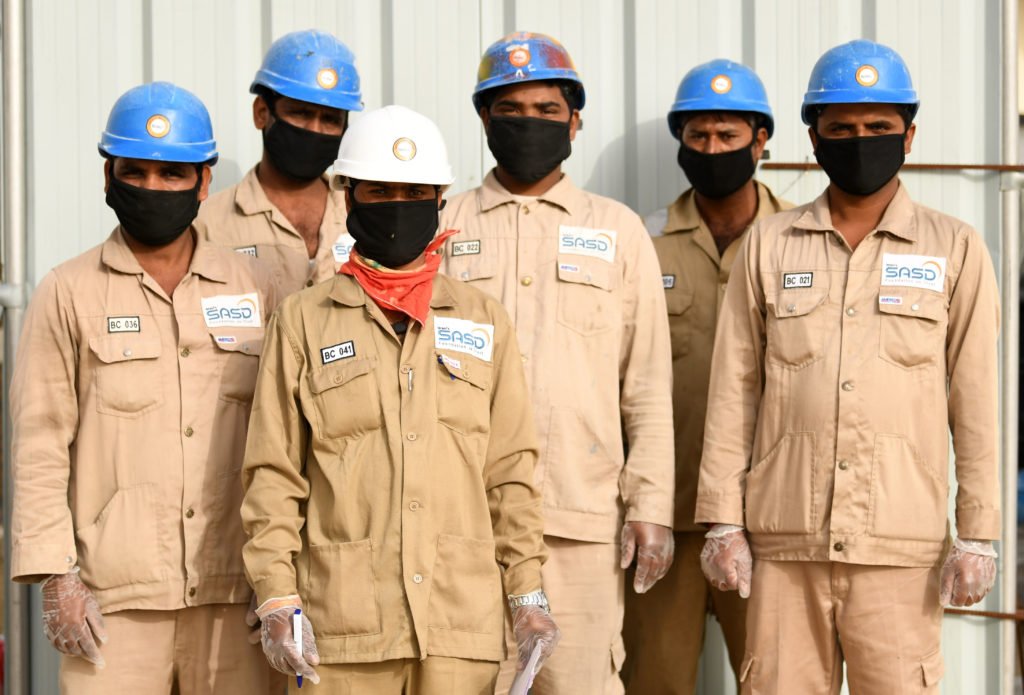
Indian Diaspora in the Region and their Welfare
Indians in the Arab Gulf countries were told to be quarantine back in India for 14 days in order to discourage undue panic among diaspora there so that it may not strain the already insufficient and overstretches healthcare facilities in the country. But India must adopt a strategic humane approach in this region of the extended neighbourhood which seems necessary to take care of its people in the region and serve its interests there. Prime Minister Modi talked to almost all the heads of the states in the region and discussed the safety and wellbeing of the Indian communities in their countries. In his telephonic conversation with His Majesty Hamad Bin Isa Al Khalifa, King of the kingdom of Bahrain assured the PM about the safety and wellbeing of the Indian community.[8] India stands for cooperative efforts with the states in the region and calls for a concerted and coordinated effort. In response to a call of assistance, an Indian team of 15 doctors and healthcare professional reached Kuwait city and will remain there for next two weeks to render medical assistance in testing, treatment and training their personnel.[9] The soft power engagements and outreach in times of rapid spread of this crisis is the smartest strategy to position India as the most acceptable power with stakes and responsibility.
Humanitarian Cooperation: Hope for Future Peace and Security
Besides, there is a very positive development in the wake of the crisis at the moment. The GCC crisis has already been in a slow resolution mode with limited political contacts between Qatar and other GCC states. The invitation to Qatar to the GCC summit by Saudi Arabia made a formal de-escalation and created a potential resolution which has eventually led to the opening of postal services with Qatar- a substantial start. The creation of ‘Joint Operation Room’ to coordinate regional response is a welcome cooperative sign for the crisis-ridden (Qatar Crisis) group.[10] There has been increasing contact the GCC states with Iran in the wake of the Iran-US confrontation through Qatar and Oman.
The region is witnessing a new sense of cooperation. The GCC states of Qatar [11], UAE and Kuwait have provided assistance to Iran- medical and other materials to help the worst COVID 19 hit country in the region. Such a trend, though in an extraordinary health emergency, is a symbol of the pragmatic realisation of the fact that Gulf as a region needs an inclusive security system. The head of the WHO praised the UAE and the Crown Prince Mohammed bin Zayed, for a second humanitarian airlift to Iran.[12] The pandemic crisis will surely deepen this regional pattern as the COVID 19 response needs a wider and coordinated approach. India needs to devise a strategy to promote this emerging pandemic response concerns among the states by promoting a regional response consensus and strategy. This is sure to help the region to gain its long evading cooperation, security and stability and strengthen India’s foothold to serve its geo-strategic, geo-economic and geopolitical goals and interests in the unfolding post-pandemic world order.
India and West Asia in the ‘Asian Century’ Syndrome
For some time, it is in the realm of international analysis and discussion that “twenty-first century” is going to be an Asian century. The emergence of China in the next world order is taken for granted. But India is having the huge power potential which needs to be nourished and strategized to take on the changes and challenges and establish itself as a credible and trusted power with proven responsibility. The SAARC initiative of India and its pandemic diplomacy is gaining currency in the region and the region is paying increasing heed to India’s proposals and suggestions in dealing with the crisis. The crux of the conversation of the Indian Prime Minister and the Crown Prince of Saudi Arabia, the G20 Chair is a clear testimony of rising prestige of India’s power credibility.[13] The following ‘Extraordinary Virtual G20 Leaders’ Summit on 26th March 2020 echoed and endorsed the human-centric globalization proposed and underscored by the Indian Prime Minister.[14] The region of West Asia and the Gulf, in particular, is of far-reaching significance in that ‘Asian Century’ syndrome in the post-COVID 19 world order.
Moreover, history is the witness that all the powerful empires, from the Roman Empire to the contemporary United States, have been sustained by their influence in the region. Influence in West Asia has always been directly proportional to power at the world stage. India needs a well-thought-out move and strategy when the West seems to be in more and more inward pattern and withdrawal mode from the region. NATO’s ‘alliance of willing’ is under severe strain but averse to allow the Chinese influence in the region. The dispatches of rescue medicine, medical team and aggressive COVID diplomacy at a time when powerful countries have failed to respond and not able to control the crisis at home is no doubt establishing India as reliable and responsible power.[15] With its democratic credentials and non-hegemonic pursuits in the region and beyond gives India the requisite potential power to lead the region with its soft power.
A critical overview makes it pretty clear that the West led by the US is not able to lead the world against this pandemic. China is fast filling this space with its economic prowess and profound control of the international supply chain. Its early control of the pandemic and its fast promotion of the narrative are making the world to turn to China with awe and fashion their fight against COVID 19. Such fast enveloping perception is bound to spur Chinese position and claim to the world beyond this pandemic. But the world is not yet ready to follow Chinese leadership. The Saudi ‘Vision 2030’ is determined to diversify its economic capability and transform its ARAMCO into an industrial conglomerate [16] and a similar pattern is at work in other countries of the region. A potential fear of Chinese dominance and monopolistic approach is at loggerheads with a vision of economic diversification of the countries in the region. They don’t want to be a mere destination of satisfaction of Chinese energy requirements and dump yard of Chinese products.
India must mobilise its machinery first to overcome the spreading tentacles of the pandemic in the country and in the neighbourhood. It needs a swift approach with pragmatic and coordinated strategy and action across the states to arrest the pandemic within the country. It’s an immensely essential step to respond as a country to the changing power structure and architecture of the world. India must take an appropriate position in the immediate region for a coordinated response. India’s SAARC leaders video-conferencing has been a right move to shore up the requite cohesion in the South Asia region and India’s image and clout on the world stage. The executive director of the WHO, Michael Ryan, has lauded India’s COVID 19 response and said that the country has a tremendous capacity to deal with the coronavirus as it has eradicated smallpox and polio through targeted public intervention.[17]
Iran and India’s Afghan policy
Iran is a key factor in India’s Afghan policy and central Asia. Iran is the worst-hit country in the region. The US sanctions are also largely responsible for making the situation grimmer every day. Iran has always been a responsible and credible partner of India in the region. India’s Chahbahar port venture in the country is a crucial chain and strategic point in India’s Afghan policy and beyond- the Central Asian countries.
However, in the recent development, Iran has dropped India from its Chabahar-Zahedan railway projects and has started the work on its own last week most probably owing to its domestic political compulsions and wants to complete before the Presidential election in Iran due next year.
The delay on the part of India is due to the ambiguity of US sanction regarding the project. India is at work to get clarity from the US but the US Presidential election is also making the situation difficult. India has, therefore, conveyed it to Iran that once the geopolitical situation stabilises and becomes clear by the end of the year, it will join the project later on. Meanwhile, Iran has expressed its commitment to the common vision and partnership with India for peace, sustainable development and economic integration in the region.
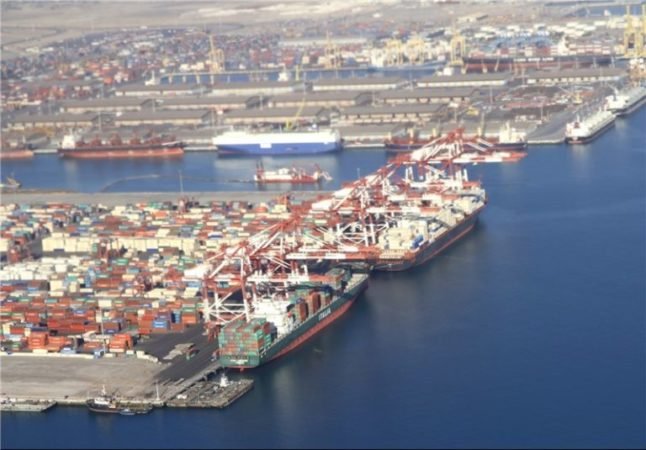
Moreover, in the face of the US sanctions India’s oil import has dropped to nil that constrained Iran very hard. India’s neighbourhood outreach warrants it to use its leverage with the US to ease the sanction grip, regain credibility and shore up its ability to fight the menace. India maintained its outreach with the sanction-beleaguered nation, India sent the C-17 Globemaster III, heavy military transport aircraft along with a medical team from National Institute of Virology, Pune and Indian Council of Medical Research, lab equipment for testing and to be donated after the evacuation of Indians in Iran.[18] Given the transnational consequences of the pandemic, India must build bridges among the countries with its diplomatic contacts and outreach to devise a collective mechanism which is an urgent need of the hour.
The crisis has thrown up a positive atmosphere to bring the countries of this turmoil ridden and violence infested region. The humanitarian responses and the diplomatic gesture at this juncture in the region towards Iran can be the basis of a broader regional engagement in the post-COVID 19 periods.[19] The announcement of a ceasefire in Yemen for two weeks subject to extension is a potential step towards a permanent ceasefire, confidence-building and comprehensive political solution.[20] Such a move is an unprecedented opportunity as the conflict was defying all efforts of peace. The call of UN Secretary-General for an immediate global ceasefire in all over the world and open window of diplomacy to enable joint response among the rival parties is needed to fight this global pandemic has perhaps been taken in a true spirit.[21] India responded fast and welcomed the announcement of a ceasefire in Yemen so that the war-ravaged country can join the fight against the pandemic.[22] In the wake of receding American footprints in the region and world, Israel also needs a pragmatic overhaul of its ‘Periphery Policy’ for a smooth transition to the changing power structure and centres underway. Israel’s national interest in such changing context and pattern can push it to a strategic introspection and be willing to join the regional response to the pandemic. Such pragmatism can take Israel to the far safer region than that it is today in. For India, both Israel and Iran are equally important to position itself in the region and the world to serve its national interests. During his conversation with the Indian Prime Minister, PM Netanyahu agreed for synergies in communication and shared efforts to forge new vision focussed on shared interests of humanity as a whole [23] sounds well to revise approach towards peace and security based on dialogue and diplomacy in the region. The strategic combination of Three-Is (India, Iran and Israel) can be a new formidable group for multilateralism and equitable world order.
In his interaction with the Chief Ministers on 11th April 2020 before his latest address to the nation on 14th April, the Prime Minister said that the earlier motto of the government “Jaan hai to Jahaan hai” (if one is alive, there is a world) will now change into “Jaan bhi, Jahaan bhi” (Life also, the world also).[24] Such a vision in this hour of the crisis has caught the attention of the struggling world for appreciation. He also talked about the “Smart Lockdown” with severe restriction in affected areas, partial restriction in less affected and opening of the rest to have a necessary balance of lives and livelihoods. These are surely a powerful vision and strategy to be emulated by the rest of the world to save humanity from this catastrophic pandemic. India is, therefore, well placed in this crisis scenario to lead the region in the post-COVID world as a trusted friend and power.
Vande Bharat: World’s Largest Evacuation Mission
The Vande Bharat, the world’s largest evacuation mission from 7th May 2020 to bring back the Indians stranded in different countries is an unprecedented pandemic response for large diaspora in this region in particular. The biggest repatriation exercise during peacetime in the recorded human history is being carried out by air and sea on a priority basis. The Indian Airforce will use around 30 aircraft including, the C-17 Globemaster and C-130J Super Hercules with Air India’s fleet of Boing 777 and 787 Dreamliner. To complement the mission, the Indian Navy has launched the “Operation Samudra Setu”. On 1st June 2020 the Mission has added 14 Special flights bring the Indians from the Gulf. [25] Given large numbers 58 more flights have been deployed for the region. The Civil Aviation Minister, Hardeep Singh Puri has rightly called the mission, “the Mission of Hope” which is particularly true for Indian in this region. No doubt the mission is a gigantic task but the more pertinent is the consequences and implications which must be enumerated and assessed properly to come out successfully in the post-pandemic resumption of life and work. The onerous evacuation exercise, therefore, must be undertaken in consonance with long term geostrategic and geo-economic interests of India and the requite security concerns of the Gulf countries.
The outbreak has, in a way, created an opportunity for India to assume its role and responsibility in the region where it has peerless soft power to bring cooperation among countries in the region amidst current health and humanitarian crisis. The dense diplomatic outreach of the Modi government in the region under its “Extended Neighbourhood Policy” has brought the region into the close orbit of Indian influence and power. The historic crisis can turn out to be a historic moment for India to position itself as the Gulf power. This is a necessary prelude to generate an atmosphere of peace and security and lead the region as a trusted partner and credible power in the post-COVID 19 ‘Asian Century’ world order.
A shorter version of this report can be found here
REFERENCES
[1] Government of India, Ministry of External Affairs,“PM’s Remarks on Way Forward at Video Conference of SAARC Leaders on combating COVID-19, Speeches-Statements”, 15th March, 2020
[2] “Prime Minister’s telephone conversation with the Crown Prince Mohd. Bin Salman of Saudi Arabia”, 17th March, 2020
[3] Government of India, Ministry of External Affairs, “Telephone Conversation between PM and Sultan of Oman”, Press Release, 7th April, 2020
[4] “Modi assured of wellbeing of Indians diaspora by Gulf nations: MEA”, the Hindu, 10th April, 2020
[5] Rahu Roy-Chaudhury, “India and the Gulf region: building strategic partnerships”, International Institute for Strategic Studies, 29th August 2018
https://www.iiss.org/blogs/analysis/2018/08/india-gulf-strategic-partnerships
[6] “RIL-ARAMCO Deal: A win-win for the Reliance Industries”, The Hindu BusinessLine, 12th August, 2019
[7]Saudi Arabia to invest $100 billion in India, Gulf News, 29th September, 2019
https://gulfnews.com/business/saudi-arabia-to-invest-100-billion-in-india-1.66772522
[8] Government of India, Ministry of External Affairs, “Telephone Conversation between PM and King of the Kingdom of Bahrain, Press Release, Ministry of External Affairs”, 6th April, 2020
[9] Government of India, Ministry of External Affairs, “India’s rapid response team to Kuwait for combating COVID-19”, Press Release, 11th April, 2020
[10] Gulf Cooperation Council, Media Centre, “The GCC Ministers of Health hold a Meeting via “visual communication” to follow up the Developments on the Coronavirus COVID-19”, 14th March, 2020
https://www.gcc-sg.org/en-us/MediaCenter/NewsCooperation/News/Pages/news2020-3-14-1.aspx
[11] The State of Qatar, Ministry of Foreign Affairs, “Qatar’s Embassy Delivers Urgent Medical Aid to Iranian Ministry of Health and Medical Education”,16th March, 2020
[12] Laura Rozen, “Coronavirus spurs regional humanitarian outreach to Iran”, Al Monitor, 18th March, 2020
https://www.al-monitor.com/pulse/originals/2020/03/coronavirus-spur-humanitarian-outreach-iran.html
[13] PM’s Telephone Conversation with Crown Prince Mohd. Bin Salman of Saudi Arabia, 17th March, 2020
[14]Extraordinary Virtual G20 Leaders’ Summit, 26th March, 2020
[15] Dipanjan Roy Chaudhury, “Covid diplomacy
establishes India as a reliable and responsible global power”, The Economic
Times, 10th April, 2020
https://economictimes.indiatimes.com/news/politics-and-nation/covid-diplomacy-establishes-india-as-a-reliable-and-responsible-global-power/articleshow/75080356.cms
[16] Kingdom of Saudi Arabia, Vision 2030, p-7
https://vision2030.gov.sa/sites/default/files/report/Saudi_Vision2030_EN_2017.pdf
[17] “India has tremendous capacity in eradicating coronavirus pandemic: WHO”, The Economic Times, 24th March, 2020
[18] Government of India, Ministry of Health and Family Welfare, Media Centre and Ministry of External Affairs, Press Release, 3th March, 2020
[19] Emile Hokayem, Masha Rouhi & Meia Nauwens,COVID-19 in the Middle East: Iran in crisis and the urgent risks for countries in conflict, IISS Podcast- Episode 33, International Institute of Strategic Studies, 2nd April, 2020
https://www.iiss.org/blogs/podcast/2020/03/covid-19-in-the-middle-east
[20] Gulf Cooperation Council,GCC Media Centre, “The Secretary General of the Gulf Cooperation Council welcomes the announcement of a ceasefire in Yemen”, 10th April, 2020
https://www.gcc-sg.org/en-us/MediaCenter/NewsCooperation/News/Pages/news2020-4-9-1.aspx
[21] United Nations, “Secretary-General’s Appeal for Global Ceasefire”, 23rd March, 2020
[22] Government of India, Ministry of External Affairs (MEA), “Official Spokesperson’s response to media queries on ceasefire in Yemen”, 10th April, 2020
[23] “PM Modi holds conversation with Israeli PM Netanyahu” https://www.india.gov.in/news_lists?a616658272
[24] “PM Interacts with CMs to Strategize ahead for tackling COVID 19”, PMINDIA, News Update, 11th April, 2020
[25] “14 Special Flight to bring home over 2000 Indian Nationals from the Gulf countries under Vande Bharat Mission”, All India Radio-News Service Division, 1st June, 2020
http://www.newsonair.com/Main-News-Details.aspx?id=390131




